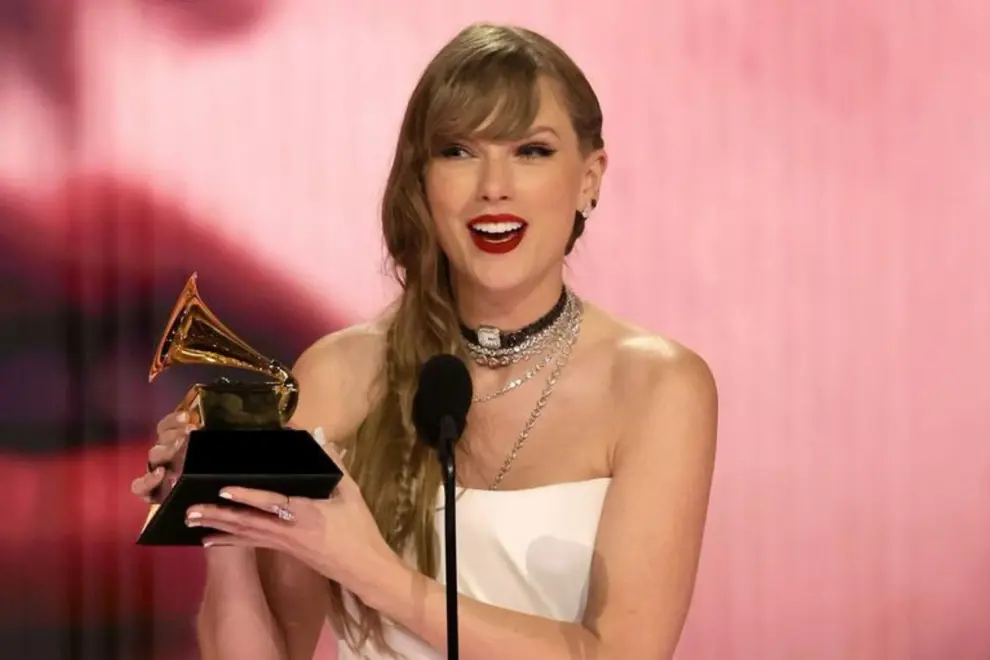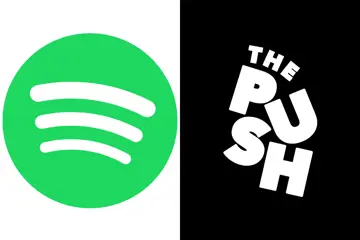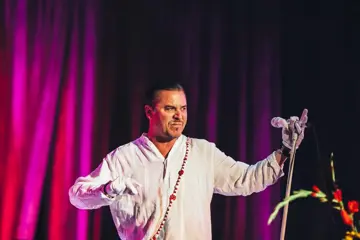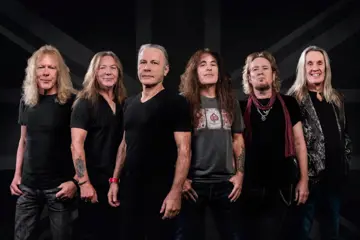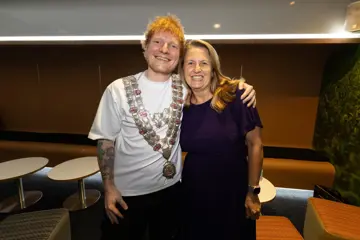Has the tide turned for the Grammys? After being attacked as sexist and racist, and younger music fans turning off in droves, The Recording Academy did a major renovation. Some of music’s biggest names were roped in to perform or present, with very extravagant sets on display.
The 2024 Grammys pulled an average of 16.9 million American TV viewers on the CBS network and streaming on Paramount+, CBS.com and the CBS app. This was a 34 percent jump from 2023 when it managed 12.4 million. Paramount+ reported a 173 percent advance in streams over 2023, which itself was a 33 percent increase from 2022.
2024 had the biggest Grammys audience since 2020. It peaked with 18.25 million viewers during the In Memoriam segment, which featured Stevie Wonder, Annie Lennox, Jon Batiste and Fantasia Barrino. Interestingly, the biggest tune-in throughout the US was in Kansas City, where 86 percent more people watched. This is directly due to Taylor Swift’s stepping out with Chiefs star Travis Kelce.
The rival NBCUniversal scored with E! Grammys Live From The Red Carpet, which had its biggest telecast since 2017 with 1.5 million tuning in. In Australia, almost 2.26 million tele-bombed into Seven for its live telecast at noon and/or its evening repeat. The 2024 ratings have arrested the Grammys’ steady decline over the past seven years. But it remains to be seen if the awards are still financially viable.
Don't miss a beat with our FREE daily newsletter
CBS pays the Recording Academy $20 million each year for licensing the Grammys. When the current deal was struck in 2017, the show was pulling 26.05 million views. It’s a long way from 1984, when 51.6 million watched Michael Jackson moonwalk it in with a record eight awards. The ten year agreement is up for renewal in 2026.
The Grammys had 18.7 million viewers in 2020, but collapsed to a record low in 2021 with 9.22 million when much of the ceremony was virtual, and only rose to 9.5 million in 2022.
The Grammys’ financial viability also depends on the money that CBS makes from advertising. It made $67 million in 2020, and $67.6 million in 2021. The price for a 30-second ad during the telecast has also been dropping. It was $1 million in 2018, right up there with prices for the Super Bowl – which that year drew 103.4 million viewers. It fell to $720,000 in 2019, then rose to $866,200 in 2021.
Grammy Problems
The problem with the Grammys is that for much of their existence, they have been perceived as sexist and racist, black audiences thought of them as irrelevant, and younger fans considered them boring. The Weeknd stuck the knife deeper. “The Grammys remain corrupt. You owe me, my fans and the industry transparency,” he tweeted in 2021 when his groundbreaking After Hours album was ignored.
During the 2010s, when hip-hop became the biggest and most influential genre, it was ghosted. Only one non-white artist, Bruno Mars, won Album Of The Year. The New York Times criticised at that time: “Broadly speaking, non-white artists, female artists, and artists who come from the worlds of hip-hop and R&B are consistently marginalized, honored in genre categories but shut out in the four major categories (Album, Song and Record Of The Year, and Best New Artist). Add it all up, and you get impending irrelevance.”
The essential problem was that an estimated 75 percent of the 10,000 voters were “old white guys who liked rock music”, claimed Zack O’Malley Greenburg of finance magazine Forbes, who covered the ceremony a number of times.
After an angry backlash, there has been a move to diversify the vote. The Academy began encouraging younger, non-white and female voters to join its 22,000-strong membership. But whether they can afford the $150 annual subscription fee, in comparison to older voters, remains to be seen.
The 2024 event highlighted the creative tension between Grammy organisers and TV execs. Academy voters want to highlight the music they like and consider great. “But the network obviously wanted to expand the audience and have them younger (with) a variety of cool genres” Greenburg suggested to the Trapital podcast. Adding to the problem, he noted, was that “the younger people don’t care because it’s only honouring music for old people. It’s a catch-22 and a tricky line that the Grammys have had to walk.
“Things have improved but it’s not entirely clear that they’re better and certainly that’s the eternal problem for the Grammys.”
Only segments of this week’s Grammys hit, despite the glamour, spectacle, surprise appearances, and milestones by Beyoncé and Taylor Swift. U2, one of the greatest live acts of all time, failed to come across on television – nor did Billy Joel, Travis Scott or Olivia Rodrigo. But elsewhere Gen Z’s A-streeters Swift, SZA and Miley Cyrus – not to mention Dua Lipa’s delicious sassiness and Billie Eilish’s elegance – seemed tailor-made for television. It was the same for fellow recluses Joni Mitchell – making her first and most likely her last Grammy appearance – and Tracy Chapman’s generational link-up with Luke Combs on Fast Car.
The volume of women heading to the winners’ podium came after the amount of female nominees grew from 15.5 percent in 2023 to 24 percent this year. It “reflected much-needed progress for women after two years of decline,” asserted a January study published by the USC Annenberg Inclusion Initiative. It also noted that the Billboard Hot 100 had the highest rate of female artists (35 percent) in 2023.
There were still no noms for Producer Of The Year and Non-Classical (the last was Linda Perry in 2019), and just one for Songwriter Of The Year (compared to three last year). R&B was repped in many categories – from Best New Artist and Songwriter to African and the stage, plus multiple nominations for SZA, Victoria Monét and Coco Jones. But rap was left out of the telecast.
Music fans and execs were reminded of the Grammys’ continuing tense relationship with the hip-hop community when Jay-Z questioned while wife Beyoncé could score a record-breaking 32 trophies, but never got an Album Of The Year. As Drake also said in his Instagram Story, the Grammys “don’t dictate shit in hip-hop”.
Did The Hollywood Reporter get it right when it sniffed, “Despite heartfelt moments, the 2024 Grammy awards suffered from a case of banality?” For Billboard, it was “as successful a Grammys in providing just about everything you could want from the show that we’ve had in recent memory, very possibly one of the greatest Grammys in the telecast’s 54-year history.”
Grammy Bump
We’ll know soon enough which winning and nominated records get a sales spike.
Last year, sales of Beyoncé’s Renaissance were up 109 percent and moved up the Billboard charts from #24 to #11. Harry Styles returned to the Top 10 with a 51 percent growth for Harry’s House. Like him, Kendrick Lamar and Adele also enjoyed increases in sales and streams on several albums. Lizzo had a 260 percent boom in Spotify streams.
Having a Grammy spot allows an engineer or producer to ask for more money, and artists for bigger guarantees for a live show.
Biggest Impact
No doubt, Aussie winners Kylie Minogue and Tommy Emmanuel – and nominees Troye Silvan, Dom Dolla and For King & Country – will benefit. But the biggest nod-in will be most likely felt by Sydney singer-songwriter Montaigne and Melbourne musical comedy trio Tripod, who contributed songs to local video game Stray Gods: The Roleplaying Musical.
They worked on the game under music director Austin Wintory, an American film and games composer that Tripod worked on for Assassin’s Creed: Syndicate.
The first release by Melbourne-based independent developer Summerfall Studios, Stray Gods was the least known nominee in Best Score Soundtrack for Video Games and Other Interactive Media. It was up against major hitters as Star Wars Jedi: Survivor (the biggest of the franchise which won), Call Of Duty: Modern Warfare II (which made $800 million in its first three days), God Of War Ragnarök (which shifted 11 million worldwide) and Hogwarts Legacy (which had sales of 24 million).
With the games category introduced only last year, there’ll be greater interest in composers, musicians, and sound designers behind the music. Stray Gods will get a fresh look-in because of the innovative way it combines musical theatre with interactive storytelling, of a college drop-out who has to prove to a pantheon of Greek gods she didn’t murder a muse.
It will also bring attention to the soundtracks. Video game players have a partiality for hip-hop and rock, with R&B, K-pop and EDM also in the mix.
Luminate found that 54% percent of all gamers prefer listening to their own music while gaming. “Only time will tell if music creators and game developers will dial into this behaviour and cater to the broader musical tastes of their audiences,” the research company said.

